Improve data quality: Top 7 strategies for better results

Improving data quality is essential for making well-founded business decisions. In this article, you will learn specific strategies for systematically increasing data quality and maintaining it at a high level in the long term.
Das Wichtigste auf einen Blick
- A common understanding of business terms within the company is essential.
- A continuous process of data quality management, including regular measurement and a robust data quality management framework, is crucial to ensure high data quality in the long term.
- Technological solutions such as data cleansing tools and monitoring tools help to maintain data quality, while training sensitises employees to the importance of data quality and enables them to actively contribute to quality assurance.
Definition and importance of data quality
Data quality is crucial to the success of a company. It refers to the quality, accuracy and usefulness of data for its intended purposes. Think of data as the foundation on which your organisation is built. If this foundation is fragile, any decision or strategy based on it will be unstable. If there is no solid data management in place, the data collected can be worthless. As a result, the full potential is not realised. So it’s not just about having data, it’s about having the right data in the right quality at the right time.
A common understanding of data is essential to ensure that all areas of the company understand what certain business terms or data objects mean and what they do not. Only if all departments start from the same definitions and quality standards can a company truly be data-driven and realise its full potential.
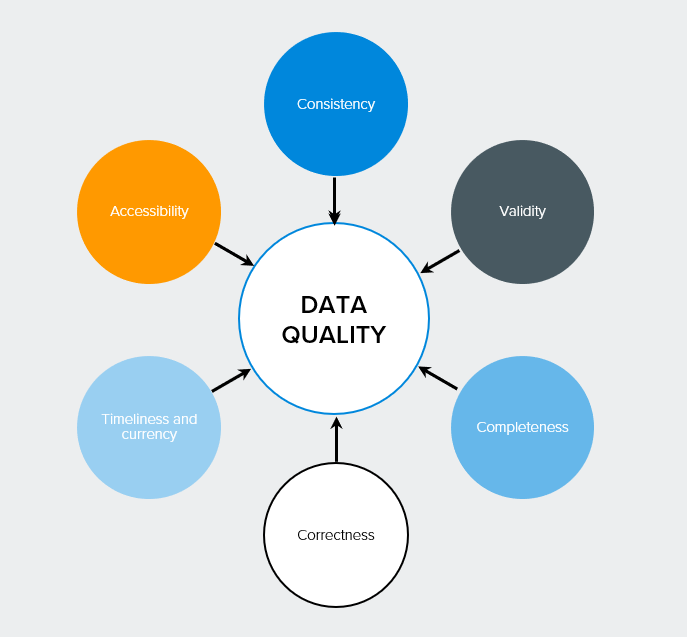
Strategies for improving data quality
Improving data quality is not a one-off process, but a continuous process that requires strategic thinking and consistent action. Data quality should be understood as a continuous process, often described as a “closed-loop” or “data quality circle”. This approach ensures that the quality of your data is not only improved, but also maintained at a high level in the long term.
A structured approach to data quality management is the key to high data quality as a repetitive and flexibly adaptable process. This means that you not only react reactively to problems, but also take proactive measures to continuously improve the quality of your data. It is recommended that you select a pilot area to start with so that you can easily integrate data quality management into your day-to-day business. This will allow you to gain experience and refine your strategy before rolling it out across the organisation.
The involvement of stakeholders and consultants is another critical success factor. It helps to avoid misunderstandings and make changes in business processes transparent. By involving all relevant parties from the outset, you ensure that your data quality initiatives are widely supported and can be implemented effectively.
In the following sections, we will look at some specific strategies that will help you to improve your data quality in the long term.
Continuous measurement of data quality
Continuously measuring data quality is the compass that navigates your organisation through the sea of data. Understanding the issues and recognising their impact is critical to improving data quality. Without regular and systematic measurement, you will be in the dark and unable to respond effectively to problems or track improvements.
An audit to determine the status quo can be a useful starting point. Building on this, you should implement an automated process. The regular review and adjustment of data quality requirements is necessary to fulfil current needs. Remember: you can’t improve what you can’t measure. By defining clear metrics and targets for your data quality and reviewing them regularly, you create the basis for continuous improvement and can demonstrate the success of your efforts.
Establishment of a data quality management framework
A robust data quality management framework is the backbone of any successful data quality strategy. Data quality management comprises three main elements: Data Profiling, Data Cleansing and Data Management. Together, these elements form a holistic system that ensures the quality of your data from collection to utilisation.
Data profiling is a fundamental method for analysing the quality of data and enables the identification of problems such as inconsistencies, missing values and discrepancies within data sources. By using data profiling tools, you can gain a clear picture of the state of your data and initiate targeted improvement measures. The regular verification and updating of address details is a practical example of how you can improve data consistency.
By implementing a structured framework that covers all these aspects, you create the conditions for a sustainable improvement in your data quality.
Training and sensitisation of employees
The best technologies and processes are only as good as the people who use them. Training employees in the handling of data and its quality is effective in practice because, in addition to technical support, it provides employees with enormous assistance in their daily work. By sensitising your employees to the importance of data quality and providing them with the necessary skills, you create a culture of data excellence in your company.
It is important that teams are always up to date to ensure that they do not slack off and continuously improve data quality. Regular training, workshops and best-practice sharing can help to ensure that the topic of data quality remains firmly anchored in the minds of all employees. Remember: every employee who works with data is a potential data custodian.
By empowering and motivating everyone involved to contribute to data quality, you create a strong foundation for long-term success.
Technological solutions to support data quality
In today’s digital era, technological solutions play a crucial role in improving and maintaining data quality. To ensure the accuracy and completeness of data, the implementation of data cleansing and data validation tools is a common method. These tools are used to cleanse data and check its accuracy. These tools act as digital guardians that work tirelessly to keep your data clean and reliable.
In addition, data integration tools can help ensure that data from different systems and processes is consistent and standardised to improve analysis. Think of these tools as digital translators that ensure all your data sources speak the same language. This is especially important in large organisations with many different systems and departments.
besonders wichtig in großen Unternehmen mit vielen verschiedenen Systemen und Abteilungen.
It is important to note that real-time analyses and artificial intelligence require a stable database to function smoothly. Without high-quality data, even the most advanced AI systems will not be able to deliver reliable results. By investing in technological solutions to improve data quality, you are laying the foundation for future innovation and data-driven decision-making in your organisation, including business intelligence.
Use of data cleansing tools
Data cleansing tools are the Swiss army knives in your data quality toolkit. Data cleansing is the process of detecting and correcting errors and inconsistencies in data, including identifying and removing duplicates, incorrect values and inconsistent information. These tools work tirelessly to clean and optimise your data sets so that you can focus on analysing and using the data.
There are a variety of data cleansing tools on the market, each with its own strengths. Here are a few examples:
- OpenRefine: A popular open source tool for data cleansing that can convert data between different formats.
- Trifacta Wrangler: Uses machine learning to suggest data transformations and aggregations, which speeds up and simplifies the cleansing process.
- Melissa Clean Suite: Improves data quality in CRM and ERP platforms with functions such as data deduplication and data enrichment.
The choice of the right tool depends on your specific requirements and the complexity of your data landscape.
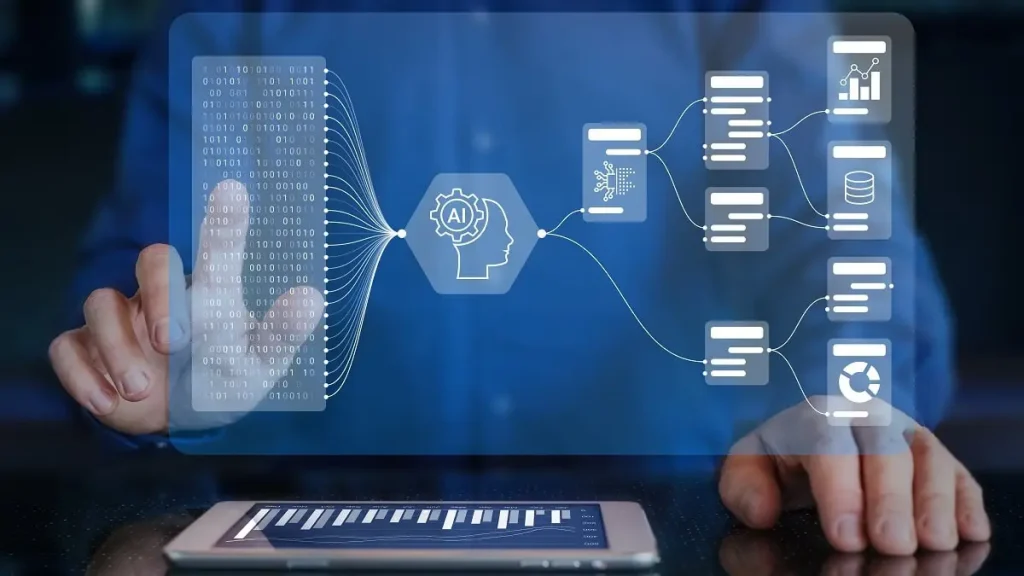
Integration and harmonization of data
In today’s networked business world, the integration and harmonisation of data from different sources is essential for a holistic view of your company. A unified analytics platform can ensure a consistent view of all company data in a kind of digital control centre where all your data streams converge and interact harmoniously with each other.
The introduction of a central hub, linked to relevant systems, can act as a single point of truth and automates data checking during input. This ensures that your integrated data is not only merged but also continuously checked for quality.
Monitoring tools for monitoring data quality
Continuous monitoring of data quality is like an early warning system for your data management. Automated tools for the continuous monitoring of data quality can detect inconsistencies, redundancies and missing data and report them via automated alerts if necessary. This enables you to react proactively to problems before they develop into major challenges.
Modern data quality tools make this possible:
- the connection and reading of source systems via APIs
- the efficient checking and cleansing of data
- Live tracking of the status of the data quality
- the creation of reports
This can take the form of a real-time dashboard for your data quality, which gives you an overview of the health of your data at all times. Data monitoring is used to monitor the status of the data. This status is then documented in a comprehensible manner.
Regular reviews and audits help to recognise and rectify data problems at an early stage. By using such tools, you create a culture of continuous improvement and vigilance with regard to your data quality.
Practical measures to avoid data quality problems
Now that we have looked at strategies and technological solutions, it is time to look at concrete practical measures that can prevent data quality problems from occurring in the first place.
Introducing a centralised hub, connected to relevant systems, can act as a single point of truth and automate data checking as it is entered. This ensures that your integrated data is not only merged, but also continuously checked for quality.
The following measures are important for improving manual data entry:
- Check for plausibility and form
- Verification of address details
- Input validation using reference values
- Duplicate search
These measures form the first line of defence against data quality problems.
One problem that is often overlooked is data silos, which often arise due to organisational structures that promote the separation of data in different departments. The data silos of individual departments often lead to inconsistent and inaccurate analysis results. It is important that organisations integrate their data to achieve accurate and consistent results. To combat this problem, it is important to develop an organisation-wide data strategy that transcends departmental boundaries and provides a unified view of company data.
In the following sections we will look at some specific approaches to implementing these practical measures using a guideline.
First-Time-Right approach
The first-time-right approach is like the “measure twice, cut once” principle in the world of data. The ‘first time right’ principle in data management aims to avoid incorrect or incomplete data as soon as it is captured. This means that you focus on quality right from the start and thus minimise the effort required for subsequent corrections.
Shortcomings in manual data entry can be reduced by measures such as intelligent input masks and input validations. These can perform plausibility and form checks during data entry. A practical way to implement the ‘first time right’ approach is to use user-friendly front-ends such as Microsoft Excel for data entry. By providing intuitive and error-resistant input interfaces, you make it easier for your employees to capture high-quality data right from the start.
Remember: Every error prevented during data entry is a step towards better data quality and more efficient processes, which can also reduce costs. You can optimise this process even further with our tips.
Avoidance of data silos
Data silos are like isolated islands in your sea of data – they hinder the free flow of information and lead to inconsistent and incomplete views of your organisation. A strong corporate culture that encourages data sharing is crucial to prevent data silos from forming. It’s about creating a mindset where data is seen as a shared resource that benefits all departments.
Data silos should be broken down and integrated on a standardised analysis platform to ensure a consistent view of all company data. A centralised data warehouse can help avoid data silos by integrating data from different departments and making it accessible. Think of a data warehouse as a kind of digital library where all your company data is catalogued, organised and accessible to any authorised user.
The regular synchronisation of data between departments also supports data consistency and helps to identify and rectify discrepancies at an early stage.
Regular data quality checks
Regular data quality checks are like regular health checks for your data. Integrating data quality checks into daily business processes helps to identify problems at an early stage. Instead of viewing data quality as a separate task, it should be an integral part of your daily business processes. This enables continuous monitoring and rapid response to potential problems.
Regular data quality checks can help to identify and rectify long-term data problems before they have a major impact. Integration into business processes is necessary to eliminate long-term identified data quality deficiencies. Remember that data quality is not a one-off project, but an ongoing process. By carrying out regular checks and incorporating the results into your business processes, you create a cycle of continuous improvement that constantly increases the quality of your data.
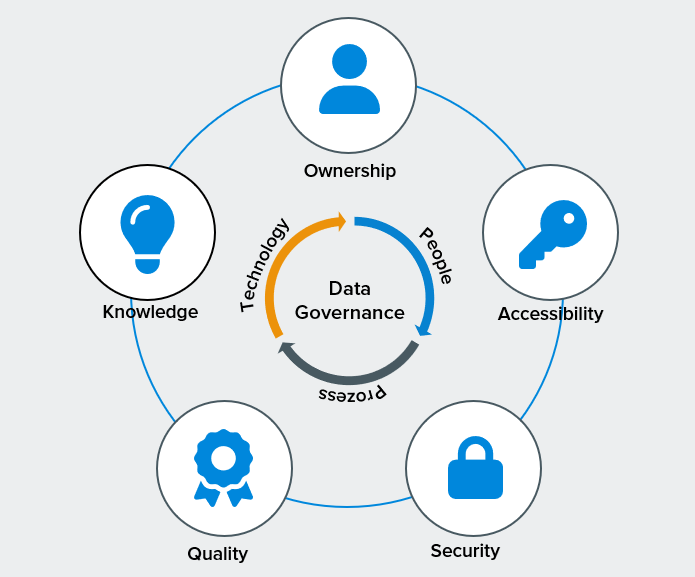
Data governance as the key to long-term data quality
Data governance is the foundation on which long-term data quality is built. It is like a set of rules that ensures that data is managed consistently, reliably and securely. Organisations should establish clear responsibilities in a top-down approach to raise awareness of data quality at all levels. This means that the initiative for data quality must come from the management level and be carried through all levels of the organisation.
Data governance requires the distribution of responsibilities for data creation, maintenance and quality assurance, whereby data owners require decision-making competences. Data owners require decision-making authority and are supported by the technical expertise of the data stewards. This distribution of roles ensures that there are clear contact persons and persons responsible for every aspect of data management.
One goal of data governance is to find an optimal combination of preventive and reactive measures for the early detection of data problems. This means that you not only react to problems, but also take proactive measures to prevent data quality issues before they arise.
Summary
In this comprehensive guide, we have highlighted the critical importance of data quality to business success. From the definition and importance of data quality to practical strategies for improvement, technology solutions and data governance, we have covered all the key aspects of effective data quality management. We learnt that data quality is not a one-off project, but a continuous process that needs to be integrated into daily business operations.
Implementing robust data quality management may seem like a challenge at first, but the potential benefits are immense. Improved decision making, increased efficiency, cost savings and a competitive advantage are just some of the rewards you can reap. Remember, in today’s data-driven world, quality data is not just an advantage, it’s a necessity. By implementing the strategies and best practices outlined in this guide, you’ll lay the foundation for a future where your data is not just a resource, but a true asset to your organisation. Make data quality your top priority and you will reap the rewards in the form of better business results and a sustainable competitive advantage.
Frequently asked questions
What are the most common causes of poor data quality?
The most common causes of poor data quality are manual input errors, outdated data, data silos, a lack of standardisation and insufficient data validation. A lack of employee training and the absence of clear data governance guidelines can also lead to quality problems. It is important to identify these causes and take appropriate measures to improve data quality.
How can I measure the ROI of investments in data quality?
You can measure the ROI of investments in data quality by looking at factors such as reduced error rates, improved decision making, increased productivity and cost savings. Improvements in customer satisfaction and sales can also be indirect indicators of ROI.
What role does artificial intelligence play in improving data quality?
Artificial intelligence plays an important role in improving data quality by using it for automated data cleansing, anomaly detection and predictive analyses. AI algorithms can uncover hard-to-recognise patterns and inconsistencies, improving the efficiency and accuracy of data quality processes.
How can I sensitise my employees to the topic of data quality?
To sensitise your employees to the topic of data quality, you can conduct regular training sessions, workshops and internal communication campaigns. Show concrete examples of the effects of poor data quality and establish a culture of data responsibility. Reward employees who are committed to improving data quality.
How often should data quality checks be carried out?
Data quality checks should be performed at different frequencies depending on the type and use of the data. Critical business data should ideally be monitored continuously, while less critical data may be reviewed weekly or monthly. It is advisable to implement automated checks and perform regular manual audits to avoid problems.
Inhalt:
"There are many myths and misunderstandings about AI"
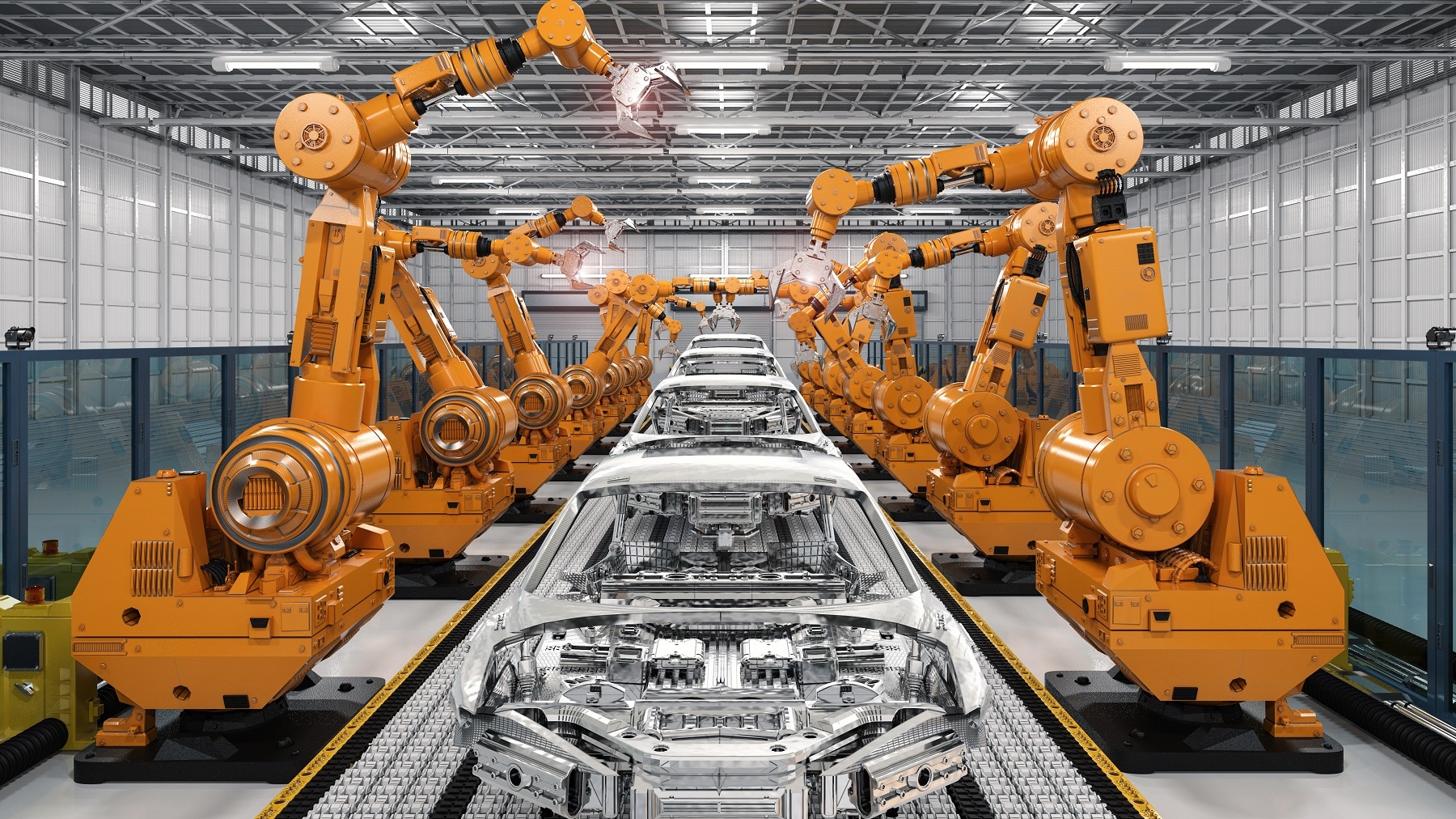
AI is the topic at the moment. As is often the case in such cases, there are many myths and misunderstandings about it. Could you explain in a few sentences what AI is?
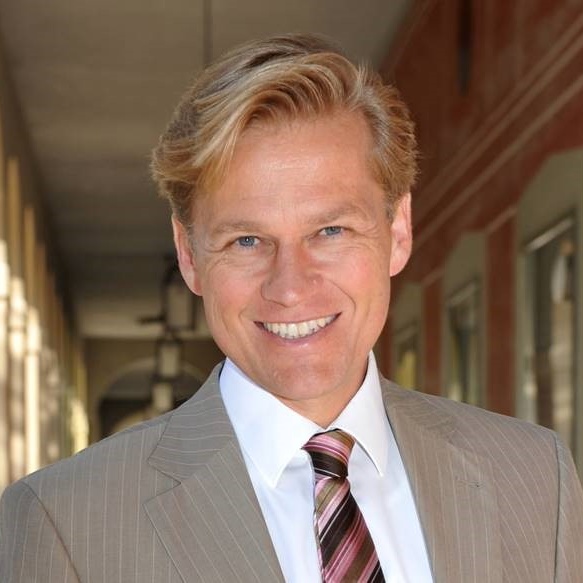
AI is a learning system created by humans. It starts with very simple systems that can recognise patterns, so-called Narrow AI, and goes up to systems that can recognise their environment and processes in it and react to them in a targeted manner.
In principle, AI systems are best understood as cybernetic systems. They have a sensor system through which information flows into them and a computational core on the basis of which the information is processed by mathematical models.
AI systems have passive output systems, such as screens or speakers, or even active motor technology that can operate physical infrastructure, so-called OT (Operating Technology), or a body of its own, as in factory robots or even just the mowing bot for the lawn. The highest form of AI is the so-called General AI, in reference to our human intelligence, which includes very many sensory and several motoric dimensions.
With AI systems, the information is of course digital in nature. They usually need large amounts of data (big data) to be trained in a batch job. The “dirty secret” of the AI industry today is labelling. A large number of people, especially for visual AIs, have to meticulously analyse and categorise the input data, i.e. the images and videos, which is called labelling.
"Human ability to make decisions based on small amounts of data still unrivalled."
The human ability to learn and draw conclusions on the basis of very small amounts of data, so-called delta learners, is still not possible for even the most up-to-date systems. An interesting branch of development in this area is edge intelligence, which will play a decisive role in connection with the IoT. There is currently heated discussion about the extent to which AI should control operating technology such as energy supply.
It is important to understand what AI cannot do today: It cannot understand and it cannot feel. Understanding is the basis for complex storylines and responsible action. Feelings are the quintessence for awareness and evaluation.
Understanding is the upcoming big leap in AI that will be truly revolutionary. Emotions are a “Hard Problem”, as science says, and simulation especially for evaluation seems possible to me, pure emotions like animals and we humans produce will probably not be feasible with silicon-based machines.
AI offers many opportunities for companies? Where do you see the main ones?
The honest answer would be everywhere. Of course, there are priorities that derive primarily from the company’s business. Here, I basically classify into two types of business models that have different AI relevance. One is for companies that produce a physical product and those that offer services. In the case of service companies, the major AI potentials are found in portfolio optimisation and in the customer journey, plus the usual efficiency gains in the operating model. For manufacturers of physical products, the greatest AI potential often lies in the product itself, for example in the autonomous vehicle, but of course in every other product. I can’t imagine any product or infrastructure part that will remain stupid.
In the business case of AI solutions, we very quickly talk about 100s to 1000s of % ROI per use case. No other IT investment can come close to offering such a high ROI!
If we look at the individual industries, the greatest potential is clearly in the medical field. Humans are super-complex physiological systems and all new diagnostics and therapies will require massive use of AI. Tools like CRISPR and gene therapies depend on AI. Healthy human longevity will not be possible without AI.
That is why AI as the 4th factor of production is also the most powerful and the fourth industrial revolution in my eyes is the AI revolution.
What areas of application do you see in concrete terms? And what requirements does a company have to meet in order to implement AI in a meaningful way?
Apart from the intelligent products I just mentioned, I see very easy productivity potential in production and quality optimisation. It is astonishing that more than 90% of the AI potential has not yet been captured.
Logistics in general is a single potential. It is astonishing that the logistics experts themselves think there is little potential. I could see for myself that the old simplex thinking blocks are a big problem here. Everyone can think for themselves whether the service we get from airlines, railways, ships and especially road transport is already optimised, or whether an incredible amount of inefficiency is the order of the day here.
In the area of information security, one can rely on intelligent ICS and compliance systems or AI cyber defence. If you look at the area of service, customer service optimisation is predestined for the use of AI. In addition, AI should of course be used in all operational decision-making processes to maximise ROI. Predictions or pattern recognition without automated decision and action are less than a tenth of the rent of AI projects.
In order to use AI effectively in the company, an AI strategy is needed, and the best way to develop one is to understand and describe the company as a cybernetic system. Then you not only recognise the AI potentials, but also understand how they must be connected.
Once you have the AI strategy, you can derive the individual initiatives and projects from it, prioritise them and implement them. Everything is connected in AI.
Where do you think many companies stand today? What are the next stages of development?
After almost 10 years, many companies are still in the process of developing many individual, small separate use cases. There are now many data lakes, but the yield is very low because there is a very heterogeneous understanding and acceptance of AI in the individual company divisions. The individual AI solutions float detached as islands from each other in the data lake. The island existence of AI is even worse than the silo existence of classic IT!
Last but not least, there is also a lack of user acceptance in the company itself, more than with customers or partners, which in turn is due to the lack of or very heterogeneous understanding of AI and diffuse job fears, which in turn stem from a lack of understanding about AI even in the company management. There is hardly anyone who can give conclusive answers in the field of AI and communicate AI strategies consistently.
And that brings us to the lack of AI governance in companies. This lack then inhibits data generation and integration. Knowledge is power and sharing data is often perceived as a personal loss of control for managers.
Another hurdle is a gap in understanding between IT and business or data science. In addition, the IT that takes over the realisation of AI in companies today is trimmed to operational efficiency and not to innovation. Bridging these gaps is an important task for IT consultants.
You spoke of the company as a cybernetic system? Where and how do people still have a place in this world?
In the medium term, I see a very fruitful collaboration between humans and AI systems emerging, in which humans find their role as teachers and AIs as apprentices. The main task of humans in the medium term will be to constantly train, optimise, monitor and coach AI. The development from High to Low and No Code shows us this path.
We will no longer need programmers, but simply experts who will guide the AIs naturally, via natural human communication.
We will also have many intelligent systems that have different strengths. Even the weaker ones will be able to learn from humans. This means that the human and the machine will work together very closely. The machine will not replace the human being, but the human being will change his role. Every human being is by nature a teacher, coach and supervisor, because humans, like most animals, are programmed to develop learning natural systems themselves – their children. It is the task of AI specialists to recognise this and to develop AI systems in this direction, as delta learners.
A lot of energy is spent on making the systems humanoid. But this is contrary to human sensibilities. We feel more comfortable when we recognise who we are dealing with than when we are obviously and even badly deceived.
Our pets don’t have to look like us for us to accept and love them. We are capable of personalising and loving things – hence the term car lover. The human brain is so powerful that it personalises AI systems on its own without being presented with a bad homunculus- that seems rather creepy to us!
Back to the topic of AI governance. What are its tasks?
AI governance has the task of being able to realise the great potentials of AI while at least minimising negative effects. What is often misunderstood is that AI governance has a limiting function. AI governance must be a balanced framework that enables the maximum potential of AI to be realised and negative impacts to be minimised and mitigated. It has an educational function for all stakeholders. AI governance thus accelerates the development of AI in the company, as it provides security for all stakeholders. At the same time, it should be part of the corporate social responsibility of every company and thus form the basis for a responsible approach to AI.
AI is not going away and there will be no more AI winter. Instead of keeping the topic nebulous, it should be described openly and realistically and AI governance should be equally clear and open. Then fears become knowledge and understanding and that in turn becomes solutions for the future.
AI is the 4th and most powerful factor of production and we are only just beginning to even recognise what potential we have.
Content
Success through quality, budget control and time management
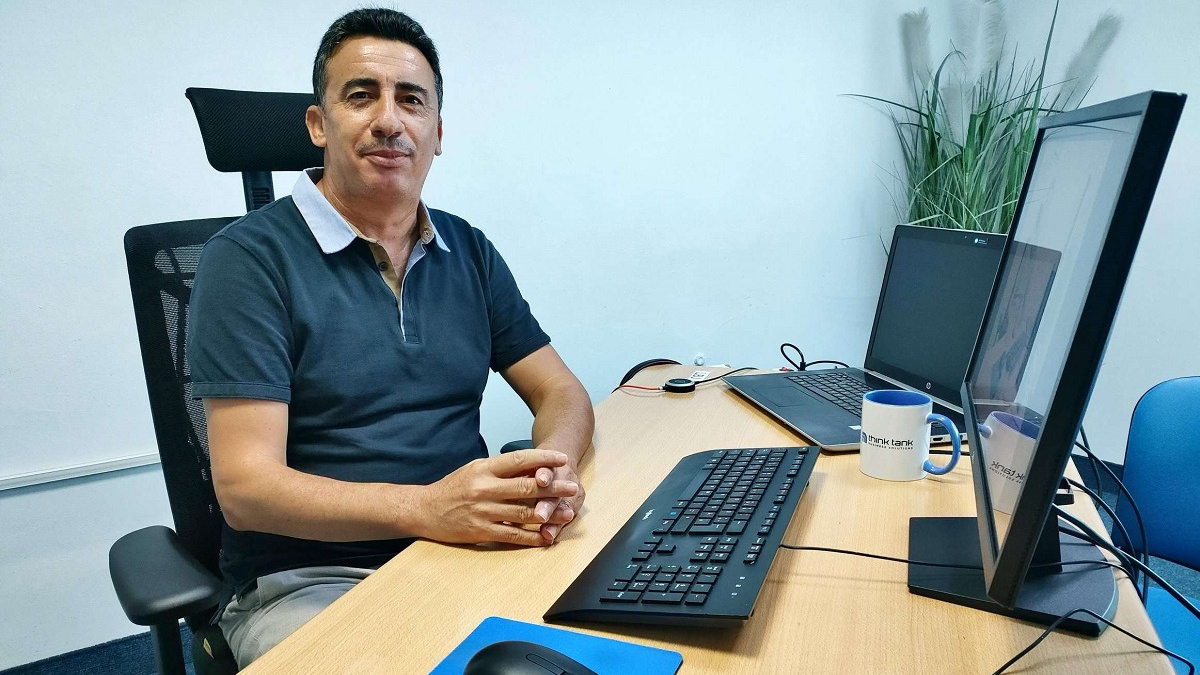
Communication decisive criterion
How did the idea of founding think tank Tunis (TTT) come about?
We, Lassaad, Mohamed, Hammouda and Yassine, already thought during our studies in Germany that we would like to give something back to our country, since Tunisia made it possible for us to study in Germany through a scholarship. We also wanted to stay up to date technologically. We also saw how much potential there is in our home country. The education is very good, there are many good graduates and engineers looking for work. That’s why the think tank was founded in Tunisia in 1998. We wanted to transfer the German model here, the discipline, the way of communicating, and since we also wanted to do projects in Germany, we then opened a location in Germany in 2002, which has since become the headquarters and bridgehead to Europe.
You work closely with the Munich office. How does the cooperation work?
We know each other very well, we have also worked together in Germany, so we had a personal level. In principle, it was just a continuation of the cooperation with a different local distribution. What was and is important to us is the mutual respect that characterises our cooperation. In addition, we implemented the same working model at both locations, because of course there are differences in mentality. Germany pays a lot of attention to processes, everyone has their defined tasks. We have adopted this here in Tunis in order to be able to deliver the proverbial German quality. Overall, we see ourselves as a German company with three important values: quality assurance as well as precise time management and strict adherence to the budget.
Decisive for a successful cooperation is, of course, communication and exchange among each other. In the past, we used to communicate a lot on a personal level; there were weekly meetings and frequent trips to Germany. I was present on site at least three to four times a year. In addition, there were and are regular coordination meetings at all levels, be it with the management or the sales team. We are also in constant exchange at the project level. For the daily exchange, we have our dailies to receive all information in time and to guarantee transparency. With time and the development of new technical possibilities, we conduct most meetings online. But still today there are regular visits of staff from Tunis to Germany and vice versa, as the personal level is simply hard to replace in the long run.
How has TTT developed since its founding?
In 1998 we started with one developer, then there were two. The number of employees has grown steadily. At first, we only hired developers. With the expansion of our range of services, it also became necessary to hire specialised staff, starting with product owners, scrum masters, DevOps developers and ending with sales and HR staff.
What do you see as the most important reasons for the successful growth?
The most important is, of course, quality. Then there is our flexibility and availability. We are able to react very quickly to our customers’ requirements. In addition, we have meanwhile built up a great deal of expertise in many areas such as e-government processes or also finance as well as automotive, so that we are not only an IT service provider, but can also contribute our specialist know-how. This allows us to offer everything from a single source, which is often very important, especially in the public sector. In addition, we have proven to be a very reliable partner.
What are TTT's greatest successes?
I am very proud of the well-known clients we have been serving very successfully for years. We are also proud of the fact that we have already won several tenders from African governments, such as the project in Madagascar, which makes it easier for investors to obtain loans. Our reputation is now so good that the Tunisian Trade Registry approached us after the new bidder, who actually won the tender, failed to implement it. We were then still able to complete the project successfully. Our office building, from which our logo is visible from afar as a trademark, is also very important to me as a visible sign of our growth and success.
What are the focal points of your work?
We want to focus on three levels. First, it is important for us to strengthen ourselves internally, to further consolidate structures so that cooperation continues to be successful. To this end, we want to optimise and adapt our processes even more so that we can continue to implement projects on time, with high quality and within budget in accordance with our goals. Our growth also makes it necessary for us to strengthen ourselves in terms of sales in order to build up an even larger sales pipeline. The third factor is that we always want to use the latest technologies, so we are constantly looking at and adapting our portfolio to meet the needs of our customers.
What do you value in your employees? What do you offer in return?
Of course, quality training is very important to us, but it should also be a human fit, they should live our values and be committed. People who are not ambitious will not get anywhere with us. Our employees should love their job, have fun and be passionate about their work and not just see it as a salary provider. In return, we offer a salary in line with the market and try to design the premises so that everyone enjoys coming and can work comfortably. We also offer quiet corners and other relaxation facilities. We try to do more than the standard in terms of team events and training. Our staff register their needs for these and we try to facilitate them when it fits our strategy. For example, there were English classes, as this is extremely important for communication with the Munich location. In principle, you can say that we always try to see the person in the employee.
Content:
"Our goal: To grow together with the bompany".
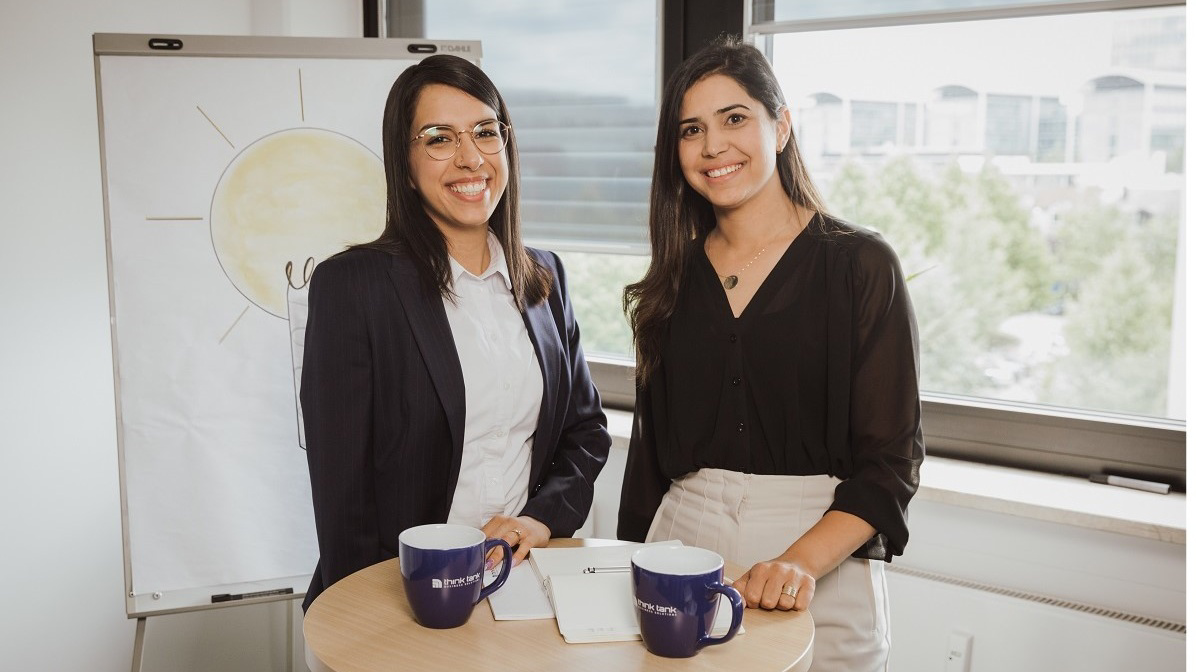
Jihen Koubaa and Sonali Parkash on their career start at tt
think tank is the first "real" employer for both of you. What was it like starting out?
Jihen: I started as a working student in 2012 after studying business administration in Tunisia and attending an eight-month German course. I started in the media editorial department of a client, but I always had a Master’s degree in mind. However, the tasks at think tank were so varied and interesting that I decided to stay. I was able to try out different areas and activities in several projects with a wide range of colleagues, from software testing and project assistance to project management and IT consulting. For me, this is one of the important advantages of a medium-sized company like think tank: you can discover a lot, a special feature at tt is that you are not tied down and can develop further.
Sona: I started during the Corona period directly after my business informatics studies. At the beginning, I was able to enjoy a bit of office time. Since I had done an internship at BMW, I was able to get directly involved in a project. This allowed me to get to know different roles and perspectives right away and thus acquire or expand my broad professional knowledge. In the process, I also discovered completely new passions. During the Corona period, we all worked remotely, of course, but the team still got along very well. When we saw each other in person after more than a year, it was as if we had known each other forever. It was important for me to have a good mentor by my side who was always there for me personally and professionally. What I liked most about tt was that everything is very informal and the colleagues are understanding. Everything can be handled flexibly in coordination with the client, so I also quickly learned to work freely and independently. I was able to try out new things and was also allowed to implement my own ideas.
What is your development path like? How has think tank supported you and helped you along the way?
Sona: In the beginning, I mainly worked on projects. Now I have a clearly structured development path with annual interviews. However, this path is not fixed, it can also be adapted through short official channels if I justify the changes well and, of course, it they are in the interests of the company. Personally, I don’t want to commit to one role, I want to remain broadly applicable, which is supported by tt. My primary goal is to continue my training as an agile coach, but I would like to remain operationally active. I am supported on my way by my team leader and my mentor. They are always available for questions, and when it comes to specialist topics, I can turn to the experts from the departments.
Jihen: There is always a tandem partner in the areas you work in that you can always ask. The hierarchies are flat and I have worked in various projects and thus acquired a broad range of expertise. I also always had the chance to further my education in training courses and thus take on more tasks. You always get support from the team leader or, earlier, from the division manager and, of course, from the HR department when it comes to further development. Personal preferences are taken into account.
What makes working at think tank special for you?
Jihen: We can express our opinions and they are taken seriously. We treat each other with respect. The work-life balance is great, there is always understanding, which is very important for me as a mother with a small child. The possibility to work remotely and to arrange my work flexibly in consultation with clients and colleagues gives me a lot of freedom. I also like the fact that you can develop and implement your own ideas. But that requires a lot of initiative.
Sona: The management always accommodates me when it comes to implementing my preferences. The self-organised work gives me the freedom that is important to me. Many colleagues have become friends. That way I have fun at work and can master everything. We also transfer this to the clients. We form a team with the clients and tackle everything together. We take the client by the hand, if necessary, and accompany him from start to finish and don’t leave him out in the cold at any point. It is important, however, that you are also proactive and that you think about and commit to your own development.
You already have experience through internships etc. with other employers. Are there any differences and if so which ones?
Jihen: I have only done internships. At think tank, I have gradually been given more responsibility in line with my individual development. What’s important for me is that I got to know the working cultures in Tunisia and Germany. That way I can sometimes build a bridge and get more involved.
Sona: I got to know the difference between a corporation and a small, medium-sized company. The hierarchies are much flatter, of course. There are also fewer employees. That’s why I don’t feel like a small “cog”. At think tank, I have had more responsibility from the start and my decisions have a greater impact than in a company. In return, I also have more influence and must and may actively participate.
What do you particularly like about your work, in terms of content and personally?
Jihen: I like the fact that I can control my work and make many decisions independently, sometimes I just work as a team member and sometimes I take over the project management for our projects. I also like the fact that I now work as a tandem partner or mentor for new colleagues, that I can pass on the knowledge I have gained and that I learn something new myself at the same time. I also experience a lot of appreciation at think tank; we all meet as equals. I appreciate a lot that we are constantly growing, which offers me new opportunities for further development.
Sona: I like that I have such different activities, that I work together in external and internal teams. The mix of operational and organisational / management topics excites me. My expertise is important and noticed and very much appreciated.
If you could wish for something, what would it be?
Jihen: I miss the on-site appointments. It would be nice if we could visit the client maybe once a quarter. It’s different to feel the atmosphere at the customer’s, it leads to new ideas and more exchange. And that we grow even more, so that I can also grow and take on other tasks.
Sona: I would like the fun to remain in the work. For me, a healthy mix of on-site and remote is important. And I also want to grow with the company.
Content:
"Compatibility of family and work"
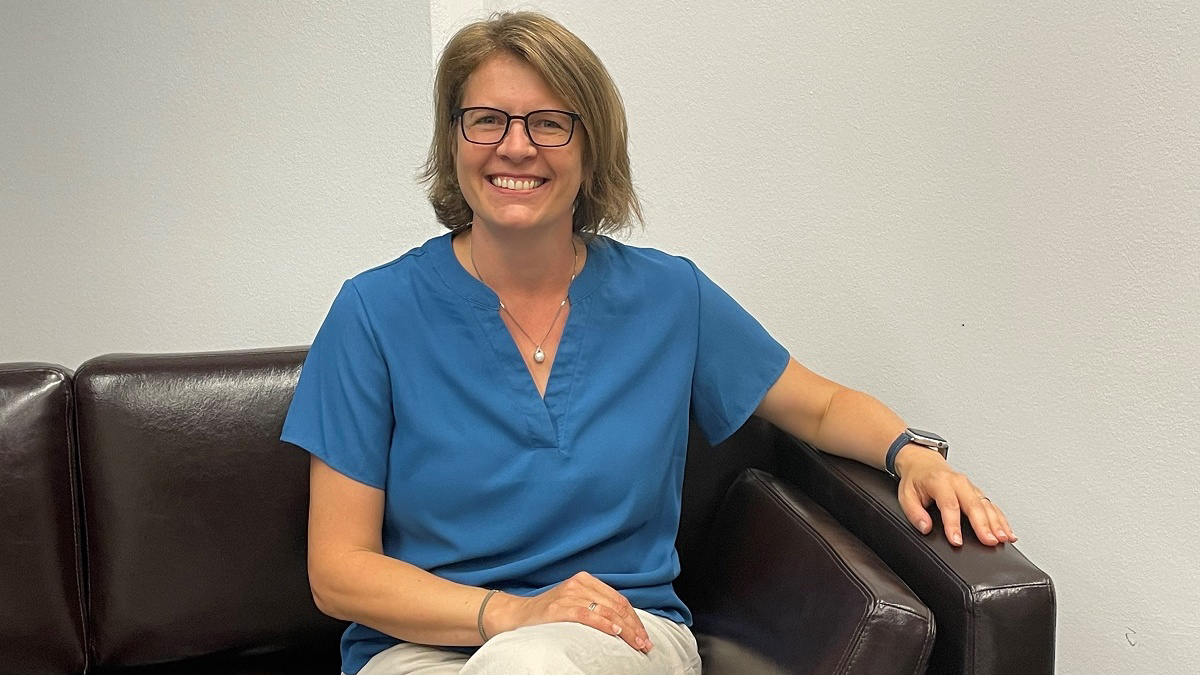
Cornelia Kapl, team leader talks about the focus of her work
What are your most important career steps at think tank?
I started in 2003 as a project manager. Later, I was involved in various IT projects on site with clients and managed software development projects in the area of banking software, including testing and support. When we expanded our range of services, I also worked as a security consultant. Since 2006, I have also been a member of the company’s supervisory board. One of the most important steps for me personally, however, was the start of my work as a team leader in 2019. Initially, I was responsible for five employees, but now there are 15. The special thing about this job is that I can actively help shape the working environment of the employees and promote the compatibility of family and career. As a mother of two children, this topic is also important to me personally. I really appreciate that at think tank you can develop professionally even if you work part-time.
You've been with the same company for almost 20 years. What is the most exciting thing about your work?
Overall, I’ve always had very interesting tasks that have changed over time. I particularly value working on and with people. In the beginning, we were a start-up and of course did a lot ourselves internally, for example marketing, accounting, office management. Gradually, we were able to create jobs for the different tasks. When I look back on my career, I see that I have virtually grown with the company and also helped to shape it, which gives me a good feeling. And today, like all the other employees, I can help shape the face of think tank, because a company can only grow through its employees.
What do you see as the milestones in the history of the company?
Professionally, it is certainly the expansion from the core business of software development via IT consulting to information security consulting. The development of our own sales department, which gave us access to two large car manufacturers, was a major milestone. At that time, our third pillar, IT security, was added.
The move from Freystraße to Messerschmittstraße to more representative premises was also important. With this move, we finally left the image of the “small clit” behind us. By gaining a large real estate platform as a partner, we have further expanded our image as a reliable partner. We have built up a relationship of trust as a constant external partner and now work with 4 project owners and 18 developers together on better solutions with the client.
What makes think tank different for you?
We differ from other companies in that we pay a lot of attention to our employees. We take individual needs into consideration, employees can actively contribute. Our board members work on projects themselves, so we don’t lead from the top down, but at eye level. Everyone who works at think tank can help shape the company, every opinion is heard. You can contribute right from the start, even as an intern or junior, everyone is equal.
The development from classic to self-organisation in 2018/2019 has further strengthened these processes. We see ourselves as a self-learning organisation in which more competences and responsibilities are assigned to the employees.
We also work agilely internally on many topics, for example, we have introduced OKR as a framework for modern management and thus involve all employees in important strategic topics. The development is far from complete, our organisation is in a state of flux and this year we would like to strengthen self-organisation even further.
How do you see the future for think tank? What is important?
We are currently in the process of focusing and positioning ourselves better, making our portfolio even clearer for our clients. Our great strength is that we are very reliable and flexible. Once we have won over a client, this often develops into a long-term partnership. In addition, we know our clients’ pains and can react flexibly to them. We have succeeded in making our working methods hybrid. Our employees can work flexibly from home as well as in the office. We make up for the lack of office communication with daily joint meetings in the morning and virtual coffee chats and other joint appointments.
What are your personal goals for the next few years?
For me, the compatibility of family and career and the creation of an optimal work-life balance remains a topic close to my heart. Many of our employees work part-time without any disadvantages or being put on the sidelines, which is often the case at other companies. In addition, I would like to further my own education in order to be able to master the challenges of digital work in the future.
Content:
"My vision: creating innovations for people"
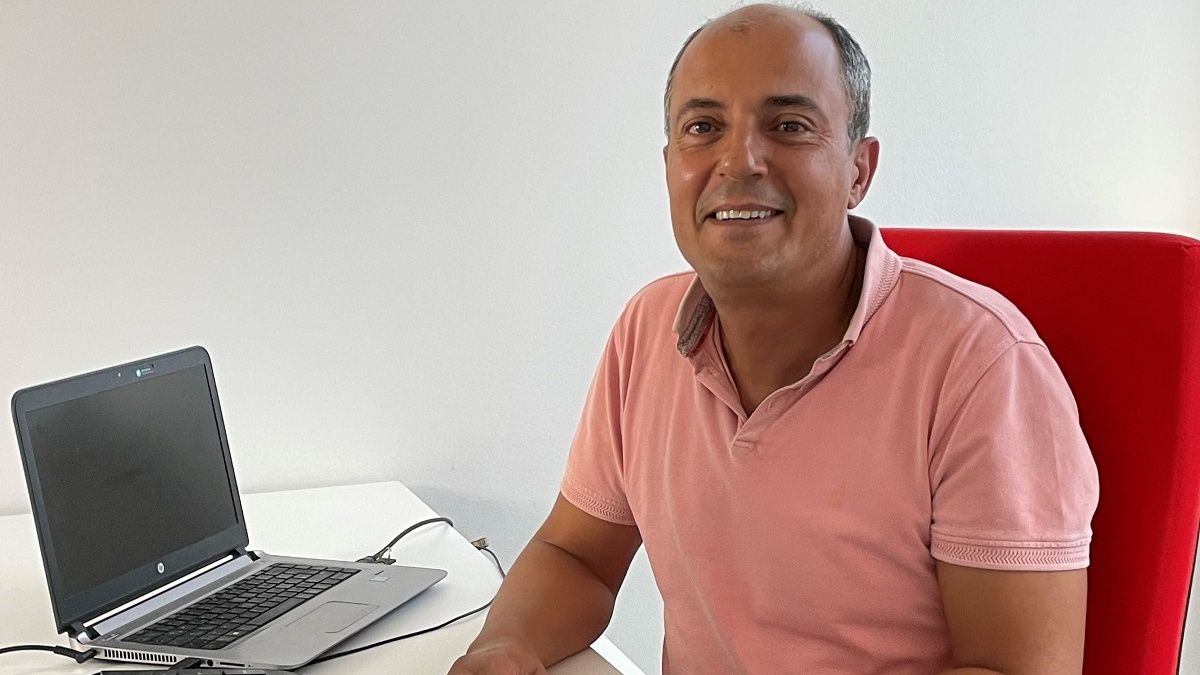
think tank founder Mohamed Chergui in an interview
When did you first think about founding your own company?
The idea came to me during my student days in Germany. At that time, a fellow student and I updated all the programmes on a company’s computers at night by going from computer to computer with a CD. That was good for earning money, of course, but we also thought about how we could do it better. That’s when we came up with the idea of networking the world together to help people do their work. That made the direction I wanted to go in clear: new technologies and IT. My diploma thesis was about how to install software once, deploy it and then use it indefinitely.
You were offered a job at a consulting firm, but you preferred to become self-employed. Why?
I wanted to realise my own ideas and work innovatively right from the start. It was also important for me to combine the two worlds of Tunisia and Germany in order to create a synergy from the different mentalities. Initially, I and my colleagues started in Tunisia and worked with partners in Germany. We first wanted to take time to strengthen the bridge to Germany and adapt the structures in both countries, and then scale the business with the resources in Tunisia. It became clear that it is important to establish a presence in Germany as a window to Europe. Think tank Business Solutions AG was then founded in December 2002.
What were the first years like?
In the first few years we were often something like the fire brigade. We were deployed wherever there was a fire, because we were set up from the beginning to be able to react quickly. In addition, we have always relied on the latest technologies. This is how we were able to convince customers like Osram and BMW of our merits and can now look back on almost 20 years of successful cooperation. Our first projects were, for example, the optimisation of the filling of ATMs as well as the reduction of returns of the Springer publishing house from 1,000,000 to 150,000 to 200,000 within one month with the help of AI.
What were tt's biggest successes in terms of innovation?
We developed an automatic news dispatcher for dpa. This was based on the first use of an XML database with keywording in Germany and was developed as part of a diploma thesis. Even today, many good ideas are generated in this way, as we still supervise three to four diploma students a year in Tunis.
We developed the first online grocery delivery service for Karstadt. However, we were ahead of time and it was not accepted by the customers. It was important for us to be able to expand our expertise in web applications. At Osram, we implemented the first digital asset management for video and image management back in 2002, which we still maintain. In the health sector, we helped to develop the health card.
To date, we also have a wealth of experience in banking finance, ranging from online transaction processing to risk analysis regarding money laundering. We have been supporting PlanetHome as a full-service provider in the field of real estate since 2011, and together we are developing a platform on which both real estate agents and prospective buyers can take care of everything related to the purchase of a house or flat.
In the automotive industry, we are broadly positioned, from the development of an electronic calculation model to the conception and implementation of a tool for testing car parts to collaboration on an application for agile process planning.
You mention the topic of agile here. For some years now, the think tank has been increasingly focusing on agility. What is agility for you?
Developing something is very difficult because you have to react quickly. We realised pretty soon that we had to coordinate at short intervals. To do this, we set ourselves internal deliveries every week, which were reviewed by the quality assurance team the following week. So basically we were already working agile there without calling it that. The change to an agile organisation was therefore only the logical step for me on the path of digitalisation, which we have been following for a long time.
How do you see yourself as a boss?
For me, it is important to have connections, to work with people. The basic prerequisite for this is trust. I trust my team and let them decide a lot for themselves, because teamwork is very important to me. I don’t like prohibitions and I believe in flat hierarchies. The worst thing for me is when I influence someone to change. Everyone should be able to develop as they wish. First of all, there is no “must” with me, you can talk and discuss about everything.
What do you see in the staff?
Every person is special and the most important thing for me is that I perceive and value everyone as a person. I find it’s best to let people run themselves. That way I can learn from their experiences and their knowledge. Because everyone is innovative and can contribute in this way. That way, everyone benefits and a sense of “we” can develop. For me, think tank is much more than just a job; my employees are like a family to me.
What is your personal vision for the future?
I would like think tank to continue to establish itself as a think tank and contribute to simplifying people’s lives, bringing people closer together with the technologies that are available to us.
Content:
More investments through simplified lending
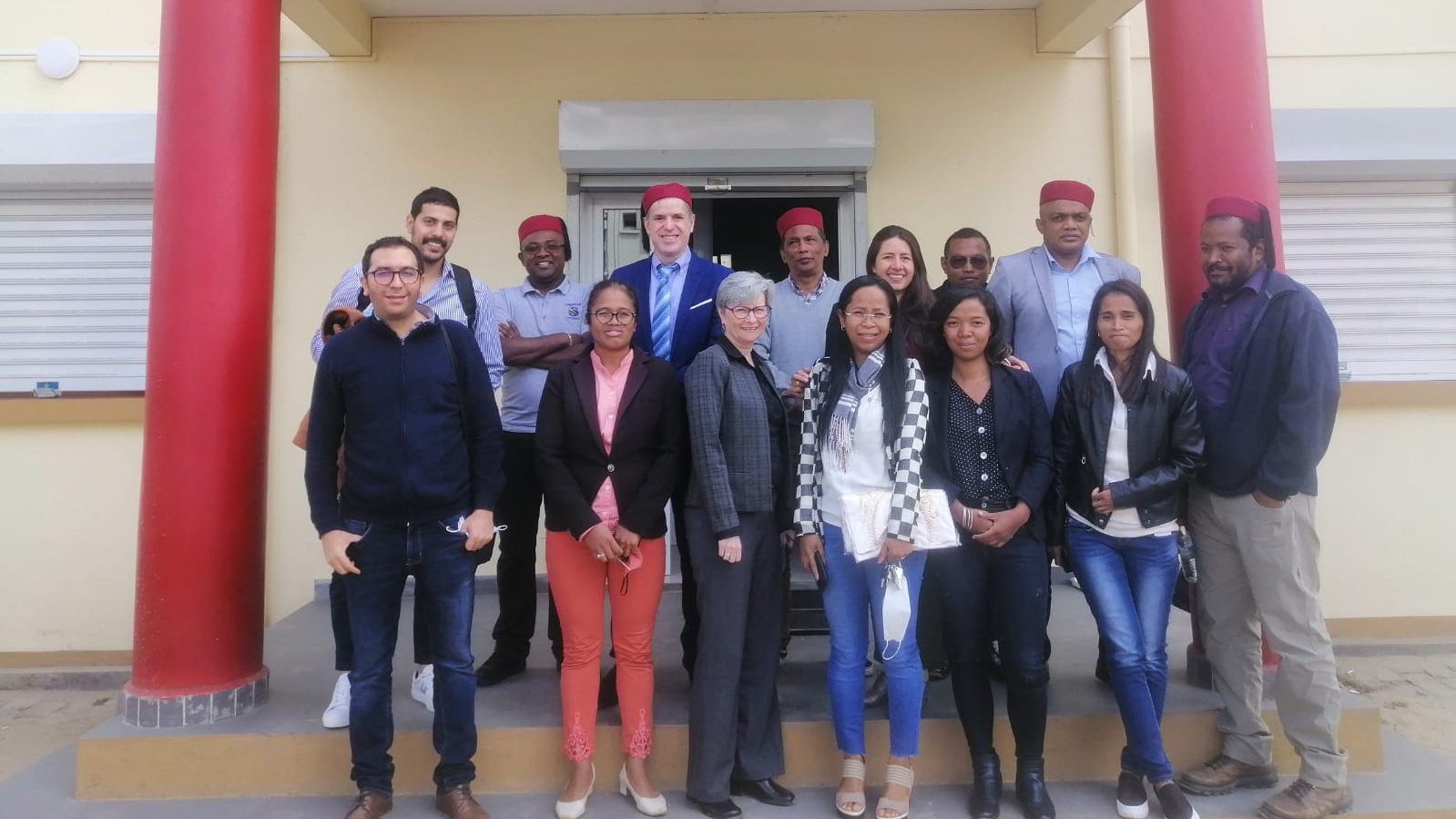
Government of Madagascar commissions think tank
Workshops and meetings to plan the project
A delegation from think tank Business Solutions flew to Madagascar with a finished concept and UX design. In four full-day workshops with the various partners, all details for the implementation were clarified. In addition, the project staff from all organisations were able to get to know each other in this way in order to clarify roles and responsibilities and to ensure that the project runs even more smoothly. In addition, further meetings were held with payment providers to guarantee the connection to the interfaces with the other platforms such as payment solutions, electronic signature and with the RCS-CM trade registry of Madagascar. A highlight of the trip was the signing of the official project contract by Mrs. Micheline Hery Manantenasoa, Head/President of PIFM and Yassine Kaaniche of think tank and with the local IT partner IBONIA. IBONIA is to support think tank on site, organise appointments and provide all necessary information for the project. After the go-live, it is planned that IBONIA will support the tt team with training and support.
Project members and go-live
In total, five major organisations belong to the project team besides tt: the International Finance Corporation (IFC), part of the World Bank Group, PIFM (Project d’Inclusion Financière de Madagascar), RNCS (Ministry of Justice of Madagascar), UGD (Unité de Gouvernance Digitale), EDBM (Economic Development Board of Madagascar) and tt’s local partner IBONIA. After the successful kick-off meeting, nothing now stands in the way of the go-live on 3 November this year.
Zufriedene Mitarbeiter*innen im HomeOffice
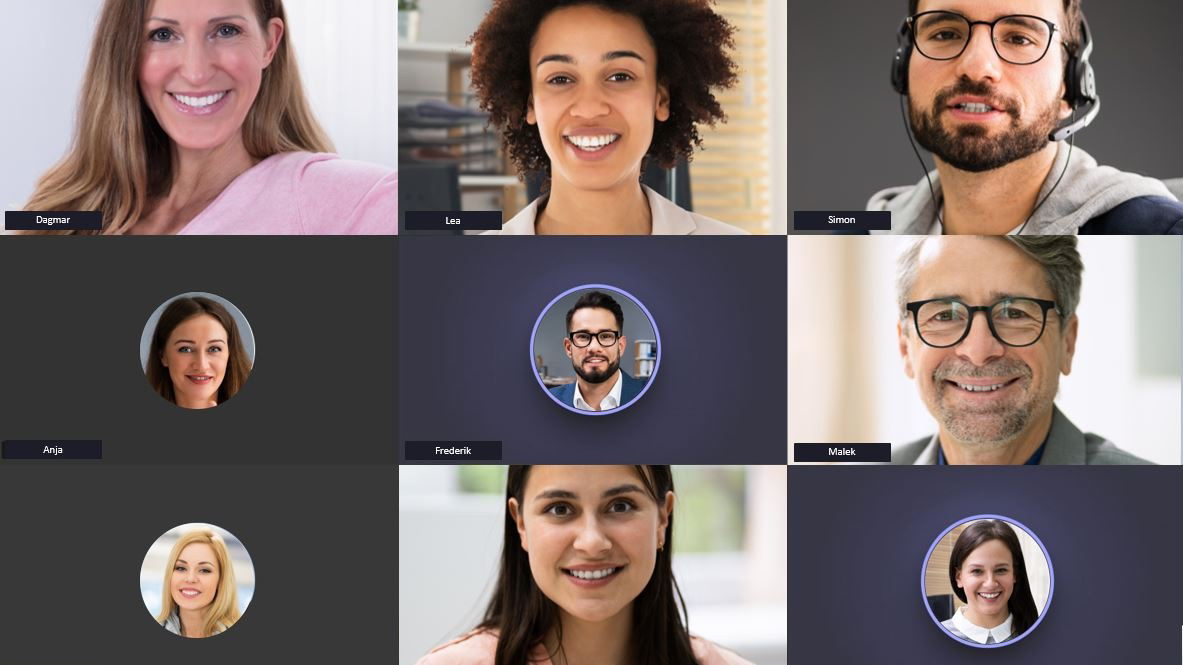
Employee satisfaction and motivation are in focus
The Corona pandemic is turning our lives upside down and changing our working world. More and more people are working from home, and politicians are recommending that home offices be made possible wherever possible. Three years ago, only four per cent of employees worked in a home office; currently it is about 40 to 45 per cent. For the next three years, it is expected that about one in three will work in a home office. This is the result of the study “Flexible Work and Rewards Survey” by Willis Towers Watson. (cf. Willis Tower Watson, 2020)
What was previously a pipe dream for many has suddenly become reality. While many used to rave about the advantages (less time spent travelling from home to the office, better compatibility of work and family, more freedom in organising the day), the reality for many is not all rosy and we have to face new challenges. If the employees are no longer in the same office, many factors of employee motivation from the old world fall away. In the past, it counted in many places who had the biggest office, the fanciest company car, the freshest fruit, the newest foosball table. All that is no longer relevant. (cf. Rittershaus 2020) Now other factors count. We have to ask ourselves how we can make employees loyal, happy and motivated to work, even if they have little physical contact with the office.
We need to focus on the things that have always had the greatest influence on employee loyalty and motivation:
The right tasks
Employee-specific promotion
Real flexibility in the home office
Teamwork
and, of course, creating the technical prerequisites
(cf. Rittershaus 2020) However, the most important thing first is that the framework conditions are right.
Appreciation and respect for individual employees – our fundamental values at think tank – mean taking care of them in hard times and keeping an eye on the health of the respective employees. At the end of the lockdown, many employees come back from the home office. They worry whether they could become infected on the way to the workplace or in the office, putting colleagues at risk. Here, for us at think tank, the rule is: everyone only comes to the office if their personal situation allows it and they feel safe. (cf. t3n Digital Pioneers 2020)
Trust is the basis for successful collaboration in the HomeOffice. The mere presence of an employee has never been an indicator of performance. But this is only really noticeable in the home office. An employee in a home office works in a much more self-organised way and is responsible for his or her own actions. (cf. t3n Digital Pioneers 2020) We support this and provide a reliable start to the day, for example, with our shared daily. Through our trust-based working hours and work by objectives, we offer real flexibility in the home office.
The way of communication changes in the home office. The one-to-one communication falls away, talking across the desk no longer exists, you have to use a medium, such as MS Teams, to reach a colleague or collaborator. Enabling other types of communication is all the more important. More on this in our concrete tips, which we have been using successfully in our company since last year and are constantly developing:
Creating new frames: We go for walks together, take breaks together, Ice Breaker Dates and are open to other formats. Shared collaboration tools: We use MS Teams (formerly Skype), Jira and Confluence and Conceptboard. The combination of these tools is optimal for us to collaborate with as many senses as possible. Participation in webinars and training: This brings new momentum to the company, our employees train their own qualifications and can broaden their horizons. The newly acquired knowledge can then be shared with other colleagues in our knowledge transfers. And that in turn strengthens communication and exchange within the team. Hold joint events such as bi-weekly knowledge transfers: We meet every fortnight and share new methods and tools. Individual colleagues can pass on their knowledge, the rest of the team joins in the discussion and gives practical tips. (cf. Waser-Zeiss Nadine 2021, cf. Business Insider Germany 2020)
Daily Standup: we start our day every morning with a Daily Standup
1:1 Conversations: weekly or 2-weekly consultations with the manager take place.
Ice Breaker Dates: Every week, two people meet for a joint exchange – without a project, just a coffee talk.
Joint break times: Every fortnight we have a joint lunch break.
Working with OKR: We have created clear structures and orientation with OKR. It is not yet running optimally, but we want to show where we want to go and what each individual can contribute.
Joint successes: During Corona we worked together on the relaunch of our website and also strengthened teamwork in many client projects. We relied more on retrospectives to help us evolve.
- Creating new frames: We go for walks together, take breaks together, Ice Breaker Dates and are open to other formats.
- Shared collaboration tools: We use MS Teams (formerly Skype), Jira and Confluence and Conceptboard. The combination of these tools is optimal for us to collaborate with as many senses as possible.
- Participation in webinars and training: This brings new momentum to the company, our employees train their own qualifications and can broaden their horizons. The newly acquired knowledge can then be shared with other colleagues in our knowledge transfers. And that in turn strengthens communication and exchange within the team.
- Hold joint events such as bi-weekly knowledge transfers: We meet every fortnight and share new methods and tools. Individual colleagues can pass on their knowledge, the rest of the team joins in the discussion and gives practical tips. (cf. Waser-Zeiss Nadine 2021, cf. Business Insider Germany 2020)
After all the challenges, is working on site after Corona the way to go again? From our point of view, no. We will continue to work consistently for our employees after the pandemic and find the appropriate tasks to optimally promote and challenge them. After all, our employees are our most valuable asset. Only with motivated employees can we be successful as a company in the long term.
Sources: Business Insider Deutschland, 2020: Motivationslos durch Home Office auf Dauer
Rittershaus, Axel (2020): Mitarbeiterbindung im Home-Office [21.03.2021]
t3n Digital Pioneers (2020): Führen im Homeoffice: Diese Expertin verrät größte Schwachstellen
https://t3n.de/news/fuehren-im-homeoffice-1265295 [21.03.2021]
Waser-Zeiss Nadine (2021): Hilfreiche Tipps fürs Hybrid-Office, wenn Gemeinschaft und Zusammenarbeit besonders im Fokus liegen https://www.teamecho.com/wp-content/uploads/2021/01/Tipps-Hybrid-Office-Collaborative.pdf [21.03.2021]
Willis Tower Watson, 2020: Flexible Work and Rewards Survey: 2021 Design and Budget Priorities [21.03.2021]
160 Days Sprint - The Lockdown as a Creative Break

A salutary shock for digitalisation or a burning glass for societal and social inequalities?
One thing is certain: in situations of crisis, our values and ideals are put to the test. Actually, it is only in situations of crisis that they become visible and gain in importance, since before they are only lip service and ideas of what we want to be as a society. Political decisions, legitimised by the containment of the pandemic, have to be implemented overnight. People and companies are permanently confronted with new procedures and instructions.
The state of emergency as default mode
In the think tank, too, the working day has changed radically. We now meet every morning at 8:45 in the daily. The cheerful, pleasant sounds of the team app have become a wake-up call to work for all of us and a fixed part of our daily routine. The daily exchange gives us support and structure in a time of volatility.
In a virtual walk & talk, we meet for small talk. What used to happen automatically and without thinking must now be institutionalised. For many, work is a big part of life. Not everyone has a family or a large circle of friends. The “good morning” in the chat is often the only signal from outside. That is why formats of this kind are only the beginning and must be constantly renewed and expanded.
My impressions after 100 days Corona
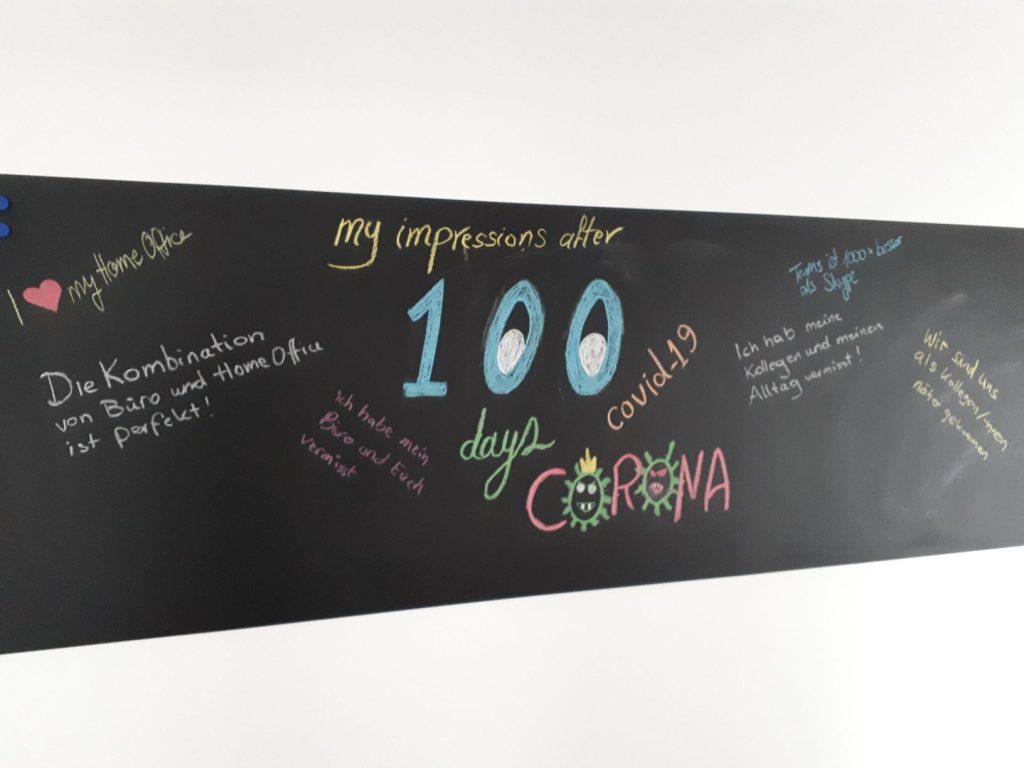
160 Days Sprint - The Lockdown as a Creative Break
Nevertheless, we used the lockdown as a creative break and completely revised our website.
We reworked the design, the content, the graphics and even the tech stack together. In 160 days. We changed our organisation from a loose working group to Scrum.
I would like to take this opportunity to thank everyone who has tirelessly designed, written and coded.
That’s why this story is a success story for me.
Conclusion
Certainly, Corona is the fuel for digitalisation. Nevertheless, we need to constantly review our actions and their impact. As the pace increases, so does the risk that some will fall by the wayside and be left behind. We need to continuously question what we can do better. How can we bring everyone along? How can humanity and warmth of heart be transported despite distance, masks and isolation?
Emotional intelligence

Why EQ is so important in the business environment
Everyone has an emotional intelligence or emotional quotient (EQ), but its expression varies from person to person. For example, a high intelligence quotient (IQ) does not automatically mean a high EQ. In practice, it has been shown that people whose emotional intelligence is more pronounced than their IQ are nevertheless more successful in the workplace. A well-developed emotional intelligence is therefore a decisive advantage in the working world and is an important component for professional success. For example, it strengthens one’s own leadership skills, has a positive effect on working with the team or stakeholders and thus improves everyday work.
Due to the increased social skills, everyday work can also be made more pleasant and goal-oriented. If a manager or project leader lacks emotional intelligence, this can have a negative impact on teamwork. Productivity can decrease or even lead to resignations. Therefore, it is particularly important not only to focus on pure workflows and processes, but also to include the social component. Often, incipient conflicts can already be avoided if at the same time the feelings and needs of the counterpart are also recognised and understood. People with a high EQ are better able to grasp their own and other people’s feelings and thus better assess the other person. The associated problem-solving competence on a social level also increases their potential to solve conflicts optimally or to prevent them from arising in the first place.
An excursion into our brain - where emotional intelligence is located
The brain is divided into an emotional (limbic system) and a rational area. In the so-called limbic system, emotions are located in this subdivision. Other factors, such as rational action and logical thinking, are located relatively far away from this area. Scientifically, the relatively large distance between the two areas explains why emotions such as anger, sadness or joy and rational action act differently from each other. Whether in private life or in everyday work, many people find it difficult to react objectively instead of emotionally. This sometimes leads to rash and emotionally driven actions or statements that may be regretted in retrospect.
The four skills of emotional intelligence
Die vier Fähigkeiten der emotionalen Intelligenz sind als Selbstwahrnehmung, Selbstmanagement, Soziales Bewusstsein und Beziehungsmanagement definiert. Diese Fähigkeiten werden wiederum in persönliche und soziale Kompetenz unterteilt. Selbstwahrnehmung und Selbstmanagement sind dabei die zwei Fähigkeiten der persönlichen Kompetenz. Sie betreffen die eigene Persönlichkeit und helfen dabei, sich den eigenen Emotionen bewusst zu werden und das eigene Verhalten zu steuern.
Self-awareness means being able to perceive, understand and interpret one’s own emotions. This applies to one-time events as well as recurring situations. Dealing with negative feelings also plays a role. Since emotions are a reaction to our environment and thus always have a cause, it is particularly important to be able to classify them correctly and to understand one’s own emotional reactions. People with good self-awareness simply find it easier to see through the potential of a situation and to take advantage of it. In a sense, these people do not let their emotional world stand in the way. They also do not shy away from unpleasant situations, but use them to develop themselves further. The better one knows oneself and one’s own emotions, the easier this is.
Self-management is about the ability to consciously and positively control one’s own emotions. This is not easy for some people because emotions outweigh rational thinking. With good self-management, you are less likely to react rashly or too emotionally. The biggest hurdle is getting behaviours under control in the long run and applying the brain’s learned skills in different situations. People with good self-management can successfully put their own needs aside and keep their behaviour under control accordingly.
Social awareness and relationship management are the two skills of social competence and relate to dealing with other people. It describes the ability to recognise and understand other people’s emotional states, behaviour and emotions. Social awareness describes the basic human ability to accurately understand the feelings and thoughts of others, even if one’s own emotional state is different. Close observation and listening are among the most important factors. Ideally, you concentrate 100 per cent on your counterpart and focus only on their behaviour. Conscious listening creates an overall picture that enables the interpretation of the other person’s emotional world.
Relationship management is the knowledge of using one’s own and others’ emotions for successful and clear communication. People with highly developed relationship management find it easier to network with different people and to derive possible advantages from it. Sympathy plays a minor role. In general, social relationships must be cultivated and valued in order to build an adequate network. The better the connection, the more positive feedback you get. If the relationship is less developed, it is much more difficult to make your point of view heard. In stressful (work) times, the biggest challenge is to maintain these social relationships. Especially in the workplace, conflicts often arise because very different characters clash. Most people do not find it easy to still have constructive conversations in emotionally charged situations. Good relationship management helps to avoid such conflictual situations in the workplace and to turn them into positive relationships.
Exercise to improve emotional intelligence
Emotions are a reaction to our environment, which can create some emotional hurdles in the work environment. This is where emotional intelligence becomes important. To improve it, everyone can work on themselves. The most important points for a positive impact on conflict are active listening, open communication and respectful interaction. Likewise, time should be taken to reflect on the situation and the emotions that have arisen. In the best case, before acting impulsively. Journaling, for example, is a good exercise to improve self-awareness. All you need to prepare is a pen and paper. You can, for example, take 30 minutes in the evening after work and reflect on the day or certain situations. Like writing in a diary, you write down how you felt and how others and you reacted.
Positive affirmations can also help to positively influence future behaviour. It is also possible to take only 3 minutes to continue writing a sentence with an open end, or to respond to a question. This way you learn to reflect and classify your feelings. Example sentences are “How I feel now is…”, “What motivates me is…”, “How could you have made your day even better?”. The answers should be written down spontaneously and from the gut, you should not think about it for a long time, do not allow pauses for writing. Whether you take 30 minutes or 3 minutes is irrelevant. It is only about writing to yourself and thus getting more clarity about your own emotions.
If you use these or other exercises regularly, you will soon see a learning effect. Everyone can actively work on and improve their emotional intelligence. In this way, you can not only master your everyday working life more successfully, but also deal better with conflicts in your private life.
Emotional intelligence at think tank
Methods such as design thinking as a people-oriented approach work specifically with the skills of emotional intelligence. The first phase of the design thinking process is about understanding people and developing the ability to empathise with them, which in turn is in line with a well-developed emotional intelligence. The aim is to find out what people’s needs, views, fears and emotions are, e.g. through active listening in the context of qualitative interviews. In this way, latent human (user) needs are to be identified, which serve as inspiration for new innovative approaches, products and services.
Sources: Bradberry, Travis; Greaves, Jean (2018): Emotionale Intelligenz 2.0 – Erhöhen Sie Ihre Sozialkompetenz und verbessern Sie Ihre Kommunikation Tan, Chade-Meng (2014): Search Inside Yourself – The unexpected path to achieving success, happiness (and world peace)